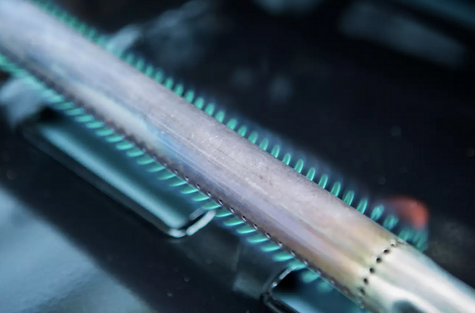
BBQing is a beloved pastime for many in the UK, and the type of gas used in your BBQ can significantly impact your grilling experience. Understanding the differences between the different types of gas is crucial in making an informed decision when selecting the right one for your BBQ. In this blog, we'll delve into the main types of gas used in UK BBQs: propane & butane. Let's fire up the grill and explore each gas's unique properties!
Propane Gas – Red Cylinder
Propane gas is widely popular and commonly used in UK barbecues due to its superior performance and efficiency. It is a hydrocarbon gas consisting of carbon and hydrogen atoms and is stored in pressurized steel cylinders. The advantages of using propane gas in your barbecue include:
- High Energy Content: Propane has a higher calorific value, meaning it releases more energy when burned, resulting in faster preheating and consistent heat output.
- All-Weather Reliability: Propane remains gaseous even in low temperatures, ensuring a steady fuel supply regardless of the weather conditions. Meaning you can use propane down to lower temperatures compared to butane.
- Easy Availability: Propane gas can be easily found and refilled at many petrol stations, DIY stores, and supermarkets.
- Suitable for Larger Grills: If you have a larger barbecue or frequently host gatherings, propane is the preferred choice as it can handle heavy-duty grilling.
If using propane gas, you will need to ensure you have the following equipment:
- Propane Gas Cylinder: Propane gas is stored in steel cylinders, commonly available in various sizes, such as 5 kg, 10 kg, or 13 kg.
- Propane Gas Regulator: A propane gas regulator is necessary to control the flow of gas from the cylinder to the barbecue. It attaches to the gas cylinder and ensures a safe and consistent gas supply.
- Hose: A high-pressure hose connects the propane gas regulator to the barbecue's gas inlet. Ensure that the hose is rated for propane use and is of the appropriate length.
Butane Gas – Blue Cylinder
Butane gas is another option for barbecues and is commonly used in portable grills and smaller barbecue setups. It's similar to propane, but there are a few important things to know about it:
- Lower Energy: Butane has less energy compared to propane, so it might take a bit longer to preheat and produce slightly less intense heat.
- Temperature Sensitivity: In colder weather, butane may not vaporize as efficiently, which could cause issues when using during colder months.
- Easy to Carry: Butane gas cylinders are smaller and lighter, making them perfect for picnics, camping, and grilling on-the-go.
If you're planning to use Butane gas for your barbecue, you'll need the following equipment:
- Butane Gas Cylinder: Store the butane gas in a steel or composite cylinder, which is commonly used for smaller or portable barbecues.
- Butane Gas Regulator: The regulator for butane is different from the one used for propane, as butane requires a specific pressure. Make sure to use the right regulator for butane gas.
- Hose: Just like with propane, use a suitable high-pressure hose to connect the butane gas regulator to your barbecue.
Conclusion
Selecting the right gas for your UK BBQ requires some thought. Propane is an excellent choice for larger grills and frequent grilling because of its high energy content and reliability in all weather conditions. On the other hand, if you have a portable barbecue and love outdoor adventures, butane is the ideal option due to its portability.
Before making your decision, think about the size of your barbecue, how many you’re likely to be cooking for, how often you'll be using it, and whether portability matters to you. Safety should always come first, so make sure to use the gas and fittings recommended by the manufacturer.